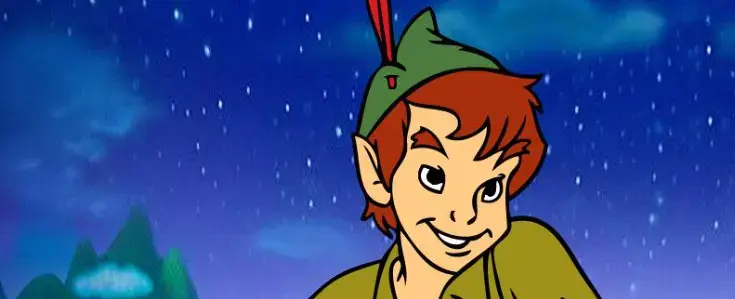When most people discuss perpetual copyrights, they’re usually its at least somewhat hyperbolic.
Outside of Mexico, copyrights in every nation expire and works become free for others to use without permission or royalty.
However, there is one interesting exception to that rule: Peter Pan.
Through a special bill in the U.K., the boy who never grows up has been granted a copyright that, at least in part, will never expire.
While the case of Peter Pan is certainly an unusual one, it raises much larger questions about the purpose of copyright, how long copyright terms should be and what the function of copyright law should be.
So it’s worth taking a moment to understand how the boy who won’t grow up became the boy who won’t completely enter the public domain.



I do believe copyright, its continued extensions in favor of rights-holders, and associated attacks on the fair use doctrine are abridgements of free speech. I also believe each addition of complexity to copyright law is a gift to copyright law firms and the consolidated publishing corporations who can easily afford to employ them, as well as an attack on small publishers and authors to whom employing solicitors and barristers is an onerous burden. But that’s not what I’m arguing here.
I’m saying that granting eternal royalties from Peter Pan to GOSH creates a monetary disincentive for anyone but GOSH to publish derivative Peter Pan works. This creates a chilling effect on the republication of Barrie works and re-use of Peter Pan characters, and is worthy of outrage. This is similar in effect to the intractable libel laws that financially disincentivize publishing negative news about powerful figures and institutions in Britain, which is even more outrageous. I’m also saying that the special copyright status of Peter Pan and larger problems like the libel law situation are evidence of the same underlying issue: Britain’s relative disinterest in protecting free speech.
Chilling effect? Chilling effect? Seriously?
Because an explicit graphic novel which invented childhood pasts of sexual abuse and exploitation for three famous fairy tale girls was delayed in its UK publication by two years?
Good lord.
Why do you assume because I listed the most prominent example of GOSH’s censorship, that it was the only one? GOSH also litigated against Canadian author J. E. Somma. In both cases, GOSH settled out of court, and in both cases GOSH enforced a lack of transparency over the settlement as part of the terms. The point of these examples is to demonstrate that GOSH went beyond the bounds of mere royalty collector when they saw the chance, not to demonstrate chilling effect.
Chilling effect is not about the books that survived the gauntlet of publication to make it to the litigation stage; it’s about all the ideas that never had a chance to blossom because the threat of copyright enforcement nipped them in the bud. Part of what makes this kind of corporate theft so insidious is that it is impossible to count the works it prevented from existing, or judge the social good they would have done.
“The motion will be heard on March 18, 2005”
Oh look, another one BEFORE the 2007 change in status.
I’m really don’t have the spoons for your lack of understanding on this basic fact. Besides your bizarre instance that authors require the free use of someone else’s characters to express their ideas instead of, oh I don’t know, creating their own characters to express those ideas.
I’m disappointed by your condescending tone. I can see we’re talking past each other, and I’m happy to end this conversation here.